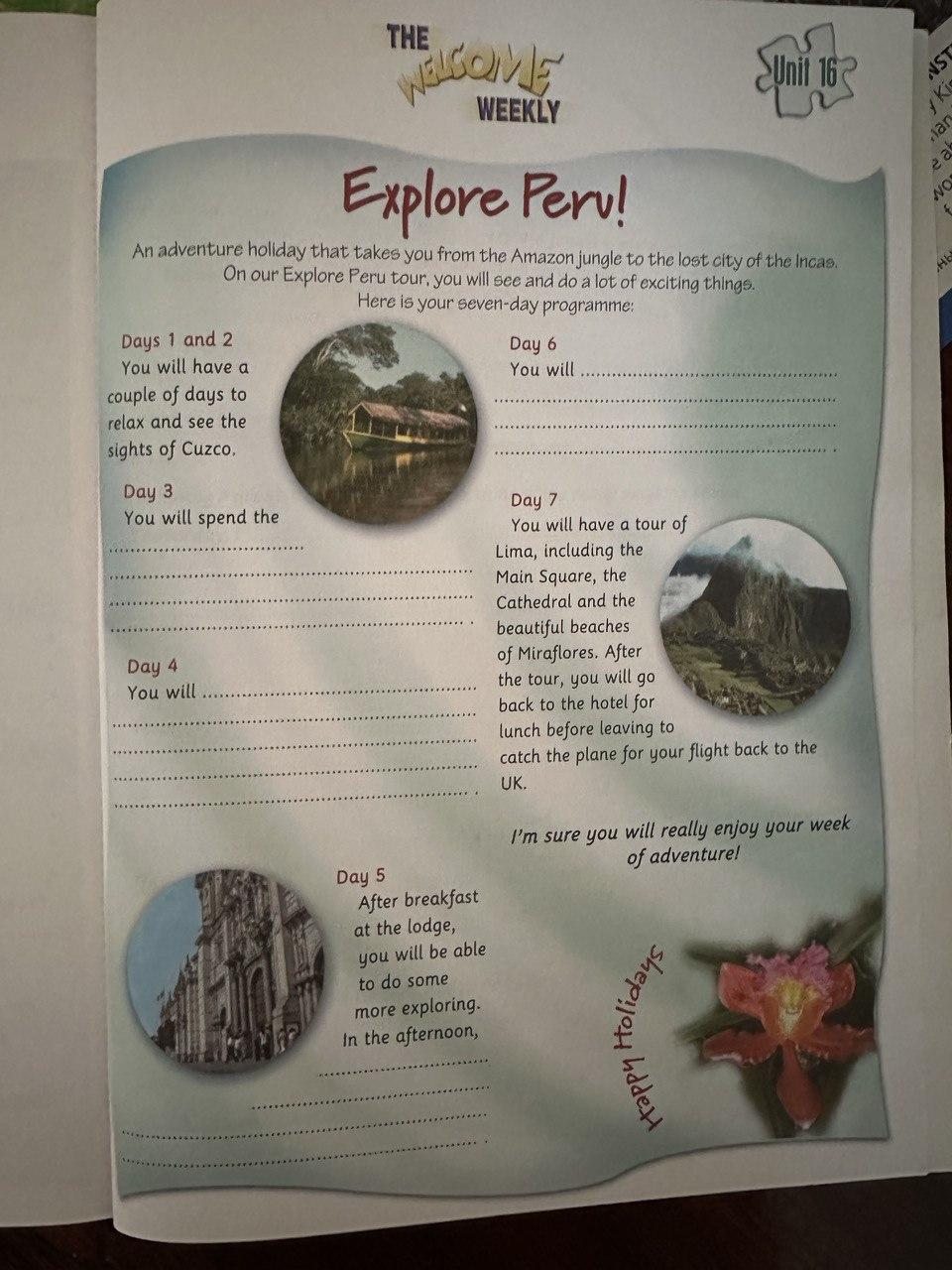помогите..дам 65 балов только помогите..

Ответы
Ответ:
Day 3: You will spend the day hiking through the Sacred Valley, visiting ancient Inca ruins and local villages. You will learn about the culture and history of this fascinating region, and enjoy the stunning views of the mountains and rivers. You will stay overnight in a comfortable hotel in Ollantaytambo.
Day 4: You will take a train to Aguas Calientes, the gateway to Machu Picchu. You will have the afternoon to explore this amazing site, one of the Seven Wonders of the World. You will marvel at the architecture and engineering of the Inca civilization, and feel the mystical energy of this sacred place. You will return to Aguas Calientes for dinner and a good night’s sleep.
Day 5: After breakfast at the lodge, you will be able to do some more exploring. In the afternoon, you will take the train back to Ollantaytambo, where you will board a bus to Cuzco. You can visit the hot springs of Aguas Calientes, where you can relax and soak in the mineral-rich waters. You can also visit the local market, where you can find handicrafts, textiles, and souvenirs.
Day 6: You will have a full day of adventure activities in Cuzco. You can choose from rafting, zip-lining, biking, horseback riding, or quad biking. You will have a lot of fun and adrenaline, while enjoying the natural beauty of the surroundings. You will also have some time to shop for souvenirs and try some local delicacies. You will spend your last night in Cuzco, celebrating your amazing week with your fellow travellers.